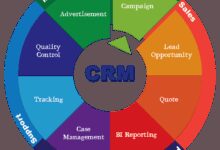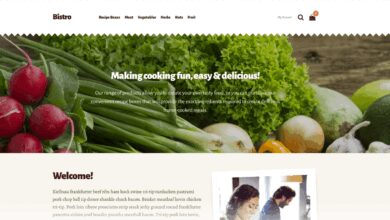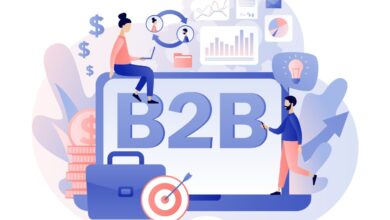Crm software for small business: 7 Best CRM Software for Small Business in 2024
Running a small business is tough, but staying organized shouldn’t be. Discover how the right CRM software for small business can transform your customer relationships, boost sales, and save you hours every week.
Why CRM Software for Small Business Is a Game-Changer

Customer Relationship Management (CRM) software is no longer a luxury reserved for big corporations. For small businesses, adopting a CRM system can mean the difference between steady growth and stagnation. These tools help you track every interaction with leads and customers, automate repetitive tasks, and gain insights into your sales pipeline—all from one central platform.
Improving Customer Relationships
At its core, CRM software for small business is designed to strengthen customer relationships. By storing contact details, communication history, purchase behavior, and support tickets in one place, your team can deliver personalized experiences at scale.
- Centralized customer data eliminates information silos
- Automated follow-ups ensure no lead falls through the cracks
- Personalized communication increases customer satisfaction
According to Salesforce, companies using CRM report a 36% increase in customer satisfaction. For small businesses aiming to build loyalty and repeat sales, this is invaluable.
Boosting Sales Efficiency
Sales teams often waste time on manual data entry, chasing unqualified leads, or losing track of follow-ups. CRM software for small business automates these processes, allowing your team to focus on closing deals.
- Automated lead scoring prioritizes high-potential prospects
- Sales pipelines visualize deal stages and forecast revenue
- Task reminders keep your team on schedule
“CRM systems help small businesses act like big ones—organized, responsive, and data-driven.” — Gartner Research
Top 7 CRM Software for Small Business in 2024
Choosing the right CRM can be overwhelming. To help you decide, we’ve evaluated the top 7 CRM platforms based on pricing, ease of use, features, and scalability. Each of these is ideal for small businesses with limited budgets and technical resources.
1. HubSpot CRM
HubSpot CRM is widely regarded as the best free CRM for small businesses. It offers a powerful set of tools at no cost, making it perfect for startups and growing teams.
- Free forever plan with contact management, email tracking, and deal pipelines
- Seamless integration with Gmail, Outlook, and HubSpot’s marketing tools
- User-friendly interface with drag-and-drop customization
While the free version is robust, premium features like automation, custom reporting, and advanced workflows require paid upgrades. Still, HubSpot’s transparent pricing and excellent onboarding make it a top choice. Learn more at HubSpot’s official site.
2. Zoho CRM
Zoho CRM strikes an impressive balance between affordability and functionality. It’s particularly popular among small businesses that need AI-powered insights without the enterprise price tag.
- AI assistant (Zia) automates data entry and predicts deal closures
- Highly customizable sales automation and workflow rules
- Strong mobile app for on-the-go access
Zoho CRM starts at just $14/user/month and offers a 15-day free trial. Its integration with other Zoho apps (like Books, Campaigns, and Desk) makes it a full-suite solution. Visit Zoho CRM to explore its capabilities.
3. Salesforce Essentials
Salesforce, the global CRM leader, offers a streamlined version called Salesforce Essentials tailored specifically for small businesses with up to 10 users.
- Cloud-based platform with real-time collaboration
- Pre-built sales and service workflows
- Mobile app with offline access
Priced at $25/user/month, it’s more expensive than some competitors but delivers enterprise-grade reliability and scalability. Ideal for small businesses planning rapid growth. More details at Salesforce Essentials.
4. Freshsales (by Freshworks)
Freshsales stands out for its intuitive design and built-in phone and email capabilities. It’s a favorite among sales-driven small businesses that want everything in one place.
crm software for small business – Crm software for small business menjadi aspek penting yang dibahas di sini.
- Integrated phone, email, and chat within the CRM
- Visual deal pipeline with drag-and-drop functionality
- AI-based lead scoring and sentiment analysis
Freshsales offers a free plan for up to 3 users and paid plans starting at $15/user/month. Its clean interface reduces training time and boosts adoption. Check it out at Freshworks CRM.
5. Pipedrive
Pipedrive is built for sales teams that want a visual, pipeline-first approach. It’s ideal for small businesses where sales processes are straightforward but need structure.
- Drag-and-drop sales pipeline visualization
- Activity reminders and goal tracking
- Strong third-party integrations (Mailchimp, Slack, Google Workspace)
Priced from $14.90/user/month, Pipedrive is competitively priced and offers a 14-day free trial. Its focus on usability makes it one of the most adopted CRMs for small sales teams. Learn more at Pipedrive.
6. Insightly
Insightly is perfect for small businesses that manage projects alongside customer relationships. It combines CRM with project management features, making it a hybrid solution.
- Project and task tracking within customer records
- Workflow automation for lead nurturing and follow-ups
- Customer relationship linking (shows how contacts are connected)
Starting at $29/user/month, Insightly is on the pricier side but offers excellent value for service-based businesses. It integrates with G Suite, Microsoft 365, and QuickBooks. Explore it at Insightly.
7. Agile CRM
Agile CRM is an all-in-one platform that blends sales, marketing, and service tools. It’s a solid choice for small businesses wanting maximum features at a low cost.
- Free plan for up to 10 users with basic CRM and marketing automation
- Built-in telephony, email campaigns, and web tracking
- Simple setup with pre-configured templates
Paid plans start at $9.99/user/month, making it one of the most affordable full-featured CRMs. However, some users report slower customer support. Visit Agile CRM for more details.
Key Features to Look for in CRM Software for Small Business
Not all CRM systems are created equal. When evaluating options, focus on features that align with your business goals, team size, and budget. Here are the most critical functionalities to consider.
Contact and Lead Management
The foundation of any CRM is its ability to store and organize contact information. Look for systems that allow you to:
- Import contacts from email, spreadsheets, or social media
- Tag and segment leads by source, industry, or behavior
- Track communication history (emails, calls, meetings)
A good CRM software for small business should make it easy to find and update customer records in seconds, reducing time spent searching through inboxes or notebooks.
Sales Pipeline and Forecasting
A visual sales pipeline helps you understand where each deal stands and identify bottlenecks. Key features include:
- Customizable deal stages (e.g., Prospecting, Demo, Negotiation, Closed-Won)
- Drag-and-drop functionality to move deals through stages
- Revenue forecasting based on pipeline data
According to Nucleus Research, companies using CRM see an average return of $8.71 for every dollar spent, largely due to improved forecasting accuracy.
Automation and Workflow Tools
Automation saves time and reduces human error. Essential automated features include:
crm software for small business – Crm software for small business menjadi aspek penting yang dibahas di sini.
- Follow-up email sequences after lead capture
- Task assignments based on deal stage
- Reminders for calls, meetings, or contract renewals
For small teams wearing multiple hats, automation ensures consistency without requiring constant supervision.
How to Choose the Right CRM Software for Small Business
Selecting the right CRM isn’t just about features—it’s about fit. A tool that works for a 5-person startup might not suit a 20-person agency. Follow this step-by-step guide to make the best decision.
Assess Your Business Needs
Start by asking: What problems are you trying to solve? Common pain points include:
- Lost leads due to poor follow-up
- Disorganized customer data across spreadsheets
- Inability to track sales performance
Define your primary goals—whether it’s increasing conversion rates, improving customer service, or scaling marketing efforts.
Consider Scalability and Integration
Choose a CRM that can grow with you. Ask:
- Does it integrate with tools you already use (email, calendar, accounting)?
- Can it support more users and advanced features as you expand?
- Is there a mobile app for remote access?
For example, HubSpot CRM integrates seamlessly with over 500 apps via its marketplace, ensuring long-term flexibility.
Test Before You Commit
Most CRM software for small business offers free trials or freemium plans. Use this time to:
- Invite team members to test the interface
- Import real data to see how it handles your workflow
- Check customer support responsiveness
Hands-on experience is the best way to evaluate usability and adoption potential.
Common Mistakes to Avoid When Implementing CRM Software
Even the best CRM software for small business can fail if implemented poorly. Avoid these common pitfalls to ensure success.
Skipping Employee Training
One of the top reasons CRM projects fail is lack of user adoption. If your team doesn’t understand how to use the system, they’ll revert to old habits like spreadsheets or sticky notes.
- Provide onboarding sessions and training materials
- Assign a CRM champion to answer questions
- Start with core features and add complexity gradually
According to CIO.com, 43% of CRM failures are due to inadequate training.
Over-Customizing Too Soon
While customization is powerful, over-engineering your CRM early on can lead to confusion and maintenance headaches.
- Stick to default settings during initial rollout
- Only customize fields and workflows that add clear value
- Document all changes for future reference
Wait until your team is comfortable before building complex automations.
crm software for small business – Crm software for small business menjadi aspek penting yang dibahas di sini.
Ignoring Data Quality
A CRM is only as good as the data it contains. Duplicate entries, outdated contact info, and incomplete records reduce its effectiveness.
- Deduplicate and clean your data before import
- Set rules for data entry (e.g., required fields)
- Schedule regular audits to maintain accuracy
“Garbage in, garbage out” applies perfectly to CRM systems. Clean data drives better decisions.” — Forbes
Benefits of Using CRM Software for Small Business
When implemented correctly, CRM software for small business delivers measurable benefits across departments. Here’s how it can transform your operations.
Increased Sales Conversion Rates
By tracking leads from first contact to close, CRMs help sales teams stay organized and proactive. Automated reminders ensure timely follow-ups, which can significantly boost conversion rates.
- HubSpot reports that businesses using CRM see up to a 29% increase in sales
- Lead response time drops from hours to minutes with automation
- Sales reps spend more time selling and less time on admin
For small businesses, even a 10% improvement in conversion can mean thousands in additional revenue.
Improved Customer Retention
Retaining customers is far more cost-effective than acquiring new ones. CRM systems help by:
- Tracking customer preferences and purchase history
- Alerting teams to renewal dates or upsell opportunities
- Providing a 360-degree view of each customer
A study by Investopedia found that increasing customer retention rates by 5% can increase profits by 25% to 95%.
Enhanced Team Collaboration
CRMs break down departmental silos by giving everyone access to the same customer data.
- Sales, marketing, and support teams work from a single source of truth
- Internal notes and activity logs keep everyone informed
- Task assignments ensure accountability
This transparency leads to faster decision-making and better customer experiences.
Future Trends in CRM Software for Small Business
The CRM landscape is evolving rapidly, driven by AI, automation, and changing customer expectations. Small businesses that stay ahead of these trends will gain a competitive edge.
AI-Powered Insights and Automation
Artificial intelligence is no longer science fiction—it’s a core feature in modern CRM platforms. AI can:
- Predict which leads are most likely to convert
- Automatically log calls and emails
- Suggest the best time to follow up
Zoho’s Zia and Salesforce’s Einstein AI are already delivering these capabilities to small businesses at affordable prices.
Mobile-First CRM Experiences
With more teams working remotely, mobile CRM access is essential. Future CRMs will prioritize:
- Offline functionality for field sales reps
- Voice-to-text note entry
- Push notifications for urgent tasks
Platforms like Freshsales and Pipedrive are already leading in mobile usability.
crm software for small business – Crm software for small business menjadi aspek penting yang dibahas di sini.
Integration with Communication Tools
The future of CRM lies in seamless integration with communication platforms like WhatsApp, Slack, and Microsoft Teams.
- Log customer interactions directly from chat apps
- Trigger CRM actions from Slack commands
- Receive deal updates via WhatsApp
This reduces context switching and keeps teams productive.
What is CRM software for small business?
CRM software for small business is a digital tool that helps manage customer interactions, track sales leads, automate marketing, and improve customer service. It centralizes customer data to help small teams work more efficiently and grow sustainably.
Is CRM software worth it for small businesses?
Yes. CRM software helps small businesses improve customer relationships, increase sales efficiency, and scale operations. With affordable and user-friendly options available, even startups can benefit from early adoption.
Can I use CRM software for free?
Yes, several CRM platforms like HubSpot CRM and Agile CRM offer free plans with essential features. These are ideal for startups or businesses with limited budgets.
How long does it take to implement a CRM?
Implementation time varies, but most small businesses can set up a basic CRM in 1–2 weeks. Factors include data migration, team training, and customization complexity.
Do I need technical skills to use CRM software?
No. Modern CRM software for small business is designed to be user-friendly, with intuitive interfaces, drag-and-drop tools, and guided onboarding. No coding is required for basic use.
Choosing the right CRM software for small business is one of the most impactful decisions you can make. From improving customer relationships to boosting sales and streamlining operations, the benefits are clear. With options ranging from free tools like HubSpot to scalable platforms like Salesforce Essentials, there’s a solution for every budget and need. The key is to start small, focus on core features, and grow with your business. By avoiding common mistakes and staying ahead of trends like AI and mobile integration, your small business can compete like a much larger organization. The future of customer management is here—make sure you’re ready.
crm software for small business – Crm software for small business menjadi aspek penting yang dibahas di sini.
Further Reading:









